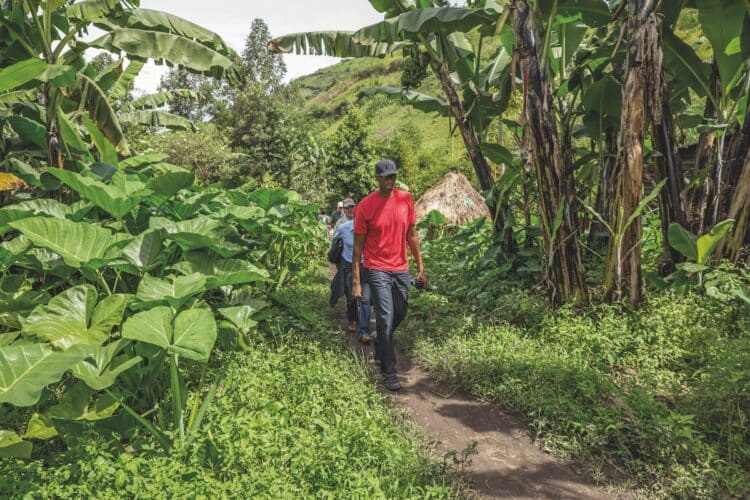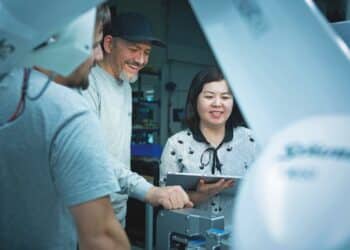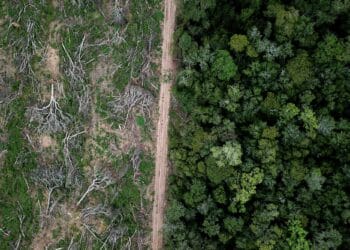The coffee supply chain isn’t working for everyone, according to Arthur Karuletwa. The VP Sustainability and Impact at Chobani discusses how his experience of witnessing genocide inspired him to use sustainability and traceability as tools for change.
Many people are inspired to pursue a career in the coffee industry because of their love of the beverage. For Arthur Karuletwa, VP Sustainability and Impact at Chobani, it was the opposite.
“I had a vendetta with coffee. Not to be mistaken with the sensory aspects of coffee that most people dislike coffee for, but my dislike for coffee was different. It was the ‘origins of coffee’ I detested,” he says.
“While there are many people who don’t like the taste of coffee, I didn’t like the fact that, among other historical aspects, it systematically played a role in one of the most horrific incidences in my mother country’s history – the 1994 Rwanda Genocide against the Tutsi.”
There were many historical, political, and social factors that played a role in the years leading up to the devastating incident, yet poverty was one of the major influencers.
“Poverty has a way of eroding a person. It starts with engulfing your identity, then it suffocates your self worth, until your dignity is subdued. This is the moment you become invisible, and now ‘kill or be killed’ becomes rational. The rationality that justifies the notion, if nobody sees me, I can’t possibly see myself. Until you’ve lived it, you don’t realise there’s a problem that needs to be fixed,” says Karuletwa.
“But what does coffee have to do with it? Coffee is the backbone of Rwanda’s economy – it’s the nervous system, the fabric of our society. I feel coffee played a major role in the genocide because of the way it was introduced to Rwanda and how it sustained a cognitive wheel of impoverishment.”
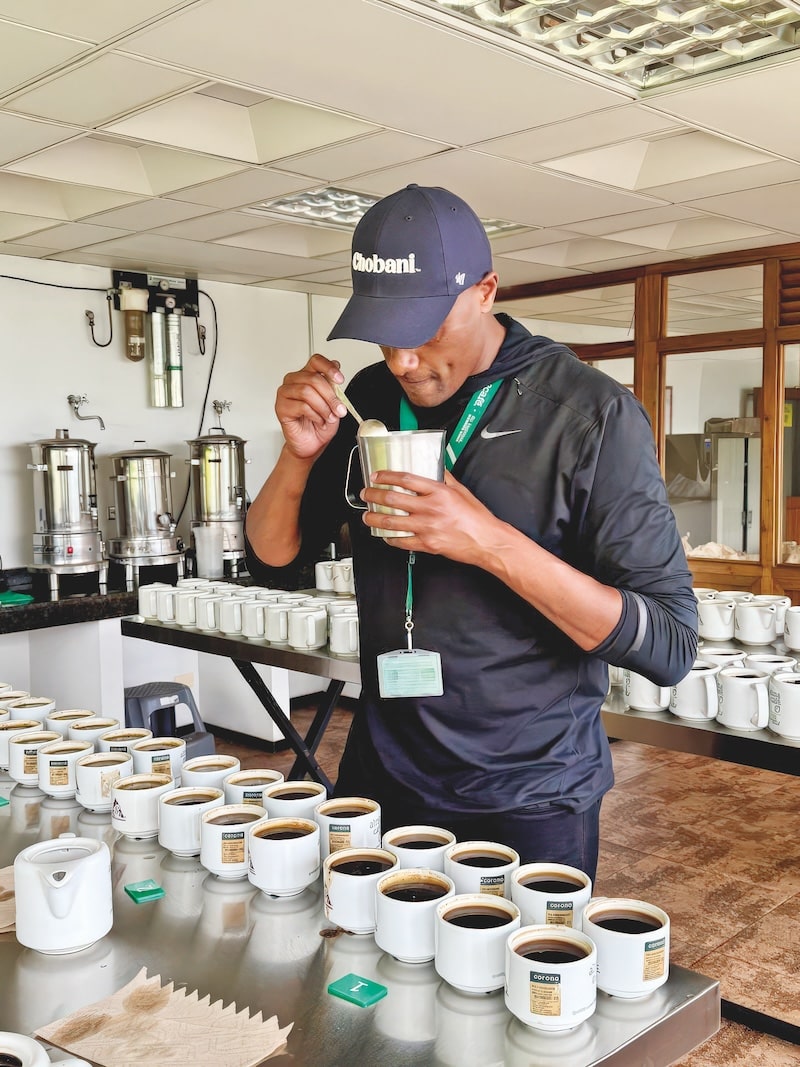
German missionaries first introduced coffee as a crop in Rwanda in 1904, but it wasn’t until the late 1920s that Belgium expanded its commercial production in the country. As part of their push for production, the Belgians introduced three laws around coffee.
“The first was that it didn’t matter how big or small the land, people had to grow coffee, which often meant reducing the portion of their land dedicated to food crops. The second was that it was illegal to cut down a tree without permission,” he says.
“The third was probably the most debilitating: Rwandans could not consume coffee as it was considered ‘for export only’. People were told the myth that it was a Western medicinal product that wasn’t good for them. Local scribes [storytellers] would be used to spread the message around communities.”
It’s said that during the harvest seasons the scribes were given a cup of very potent coffee brewed using a Turkish pot. They were instructed to drink at least three ounces, which would often cause heart palpitations due to their unfamiliarity with caffeine. With this first-hand experience, the scribes were then encouraged to retell their experience far and wide to discourage Rwandans from drinking coffee.
“These three laws created a cycle of poverty so dangerous we saw its ugly face in the 1994 genocide,” Karuletwa says.
“I came to terms with the fact that most solutions usually lie at the heart of their problem. And since coffee was the both the protagonist as much as it was the supporting cast, I believed it had the solutions to restore the humanity we had once lost. It is here I decided to wage a war on poverty and use coffee as the instrument I would go to battle with.”
Growing up as a refugee in several East African countries, Karuletwa was awarded a school scholarship to play basketball in the United States soon after the 1994 Rwandan genocide. After finishing his education, he sought to fulfil his mission through a career in the heart of the coffee supply chain.
“I had an unquenchable purpose that turned into a profession and now it’s a relentless passion,” he says. “I’ve been in coffee for 23 years and worked at every level of organisation – corporate, governmental, and non-governmental – up and down the supply chain. I felt before I could understand what was ailing the supply chain, I needed to complete a full diagnosis.”
Experiencing every element of the supply chain was intentional. Karuletwa wanted to learn every facet of the chain, map it, and understand it at a granular level. Through this extensive experience – which includes time at the Rwanda Ministry of Agriculture, Starbucks Coffee, Westrock Coffee, and now at Chobani, which acquired La Colombe Coffee Roasters in December 2023 – he’s concluded that the coffee supply chain on which the more than US$200 billion industry was built on is no longer working.
“If I was to compare the supply chain to a team sport, it would not be doing well. In a sport like basketball, you win together and lose together, and there is an understanding you are all rowing in the same direction. In coffee, a lot of people win but a lot of people also lose, so we are not playing as a team. Over time it has become imbalanced – some of the supply chain has cracked and broken away,” he says.
“We need to appreciate that in the times we live in, the archaic model we have been using for decades cannot uphold the demand that is now required. There are many variables that have shifted the market, from climate and geopolitical issues to the needs and desires of not only the consumers but also the younger and more educated populations in the producing countries who want change.”

Karuletwa believes sustainability and traceability are tools that large coffee companies can use to help rebalance the supply chain. He describes the industry as a living organism that won’t ever stop shifting and evolving, thus players in the industry must learn to adapt and pivot. One method he thinks can help them is digitalising the supply chain.
“My hope is that if we can digitalise the supply chain – not just upstream where the coffee is roasted and consumed but also where it is grown – we can better link producers to consumers and quickly diagnose any issues, just like you would in a living organism,” he says.
“Connecting the producing south with the consuming north is imperative in terms of how we understand the well from which we draw our product. A lot of brands struggle to communicate this with their customers because the supply chain is so complex, but it doesn’t have to be that way.”
With climate change increasingly impacting harvests and the rise of disease resistant crops, Karuletwa is confident a digitalised supply chain can aid the industry’s sustainability efforts.
“Changing weather patterns are not just hampering harvests but influencing a multitude of diseases that are multiplying at a rate we cannot keep up with,” he says. “However, there is a new generation of not just farmers but also roasters and consumers who are more informed and have a desire to change, which is causing big coffee companies to reassess the archaic supply chain.”
Another issue in the current format, according to the VP, is sustaining the labour force at origin to keep up with the increasing demand for coffee. The average age of a coffee farmer varies by region but is around 55 globally. According to the International Coffee Organization, the average age of a coffee farmer in Africa is 60. The cultivation of coffee has long been a generational tradition, yet many young people in coffee-growing communities are seeking opportunities elsewhere.
“We need to look at how we’re going to incentivise the next generation producer to stick around. We need to ask simple questions: are they meeting their cost of production? Are there incentives around premium coffee so they don’t just live but can thrive?” he says.
“Coffee farmers are innovative and are now saying: ‘We understand what it costs for you to deliver cups of coffee to your customers. We’re not going to ask you to pay more than this coffee deserves, so we expect the same for us – we expect to earn what we deserve’.”
Meeting coffee farmers in more than 15 countries around the world over his career, Karuletwa says many tell him the same thing: ‘I love growing coffee, not because it’s going to make me extremely wealthy, but because where the coffee is grown is my wealth, my homeland, my soil. It’s a reflection of generations of culture and traditions. My culture is my wealth’.
“However, if they can’t feed their families, they will be forced to do something else. They will chop down the coffee trees and grow something else, or they’ll find a different income,” he says.
In 2024, Karuletwa’s work in the industry was brought into the spotlight in the Apple TV series Omnivore. The documentary series narrated by chef René Redzepi explores key ingredients that have built societies and influenced history. Episode seven delves into the world of coffee, including Karuletwa’s work on tracking the traceability of Rwandan coffee from tree to cup and ensuring producers in the chain were fairly compensated for their work.
“Many big coffee companies are doing what they can to ensure farmers are being paid fairly, yet it comes back to the fact the supply chain on which they stand is old and brittle,” he says.
“Do these companies have the will to change the supply chain? I think so, but it’s a heavy lift and I think it’s going to take the entire industry working together to discuss and define its future in a way that brings equilibrium.”
After watching the episode, Barry Moore, Managing Director of La Marzocco Australia, was struck by Karuletwa’s work and the powerful storytelling of the series. Karuletwa also featured in the Rise of the Espresso, a film created through the vision of La Marzocco CEO Guido Bernardinelli.
Moore was so inspired by the two documentaries that, as a member of the Melbourne International Coffee Expo advisory committee, he organised for Karuletwa to speak at the industry tradeshow in Australia to get his story in front of even more people.
“Arthur’s story is extraordinary. A survivor of the Rwandan genocide and former refugee, he has turned coffee into a bridge for reconciliation and a tool for fighting poverty,” says Moore.
“Through traceability, his mission is to transform an outdated system into something sustainable, reminding us all of the role we play in our daily coffee choices that help develop the lives and communities of coffee farmers around the world.”
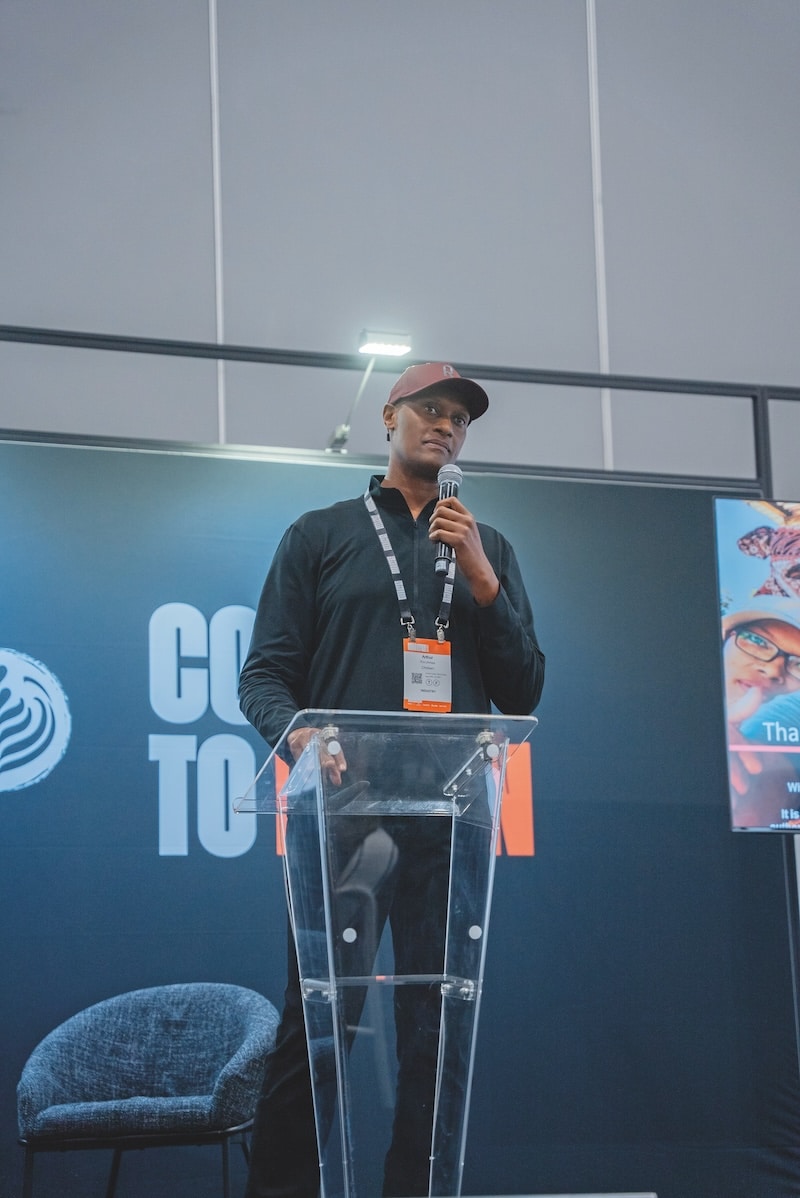
As part of his role at Chobani and La Colombe Coffee Roasters, the sustainability and impact expert continues his work in tackling poverty through coffee and building a supply chain that better benefits all who interact with it.
“Chobani’s Founder Hamdi Ulukaya has an incredible story that reminds me of the roots from which I came from as an immigrant. He moved from Turkey to the US and built an incredible company through the lens of the soul of people and learning learn from history,” says Karuletwa.
“Products are so culturally ingrained in us, and being able to bring that sense of culture through a product like yogurt can be used as an antidote to connect people and remind us of the humanity we have in us. In parallel, he is challenging us to do the same in coffee, so I was very attracted by his mission and vision.
“Coffee is a commodity that turns into an experience – people have an emotional connection to the product. If you spend any time on a farm, you’ll feel it, you’ll see it, you’ll hear it. So, my question is, how do we uplift our supply chain to give it a sense of dignity and hope, and how do we restore one of the most valuable assets that even you and I have – our identity?”.
This article was first published in the July/August 2025 edition of Global Coffee Report. Read more HERE.

